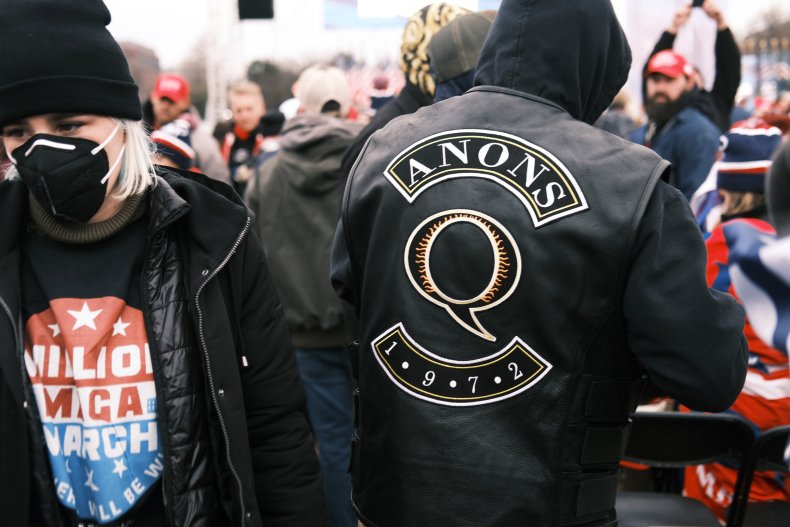Toxic Attempts to Explain the Inexplicable | Opinion
Conspiracy theories arise from a deep-seated human instinct to try to explain the inexplicable.
The more horrifying and senseless a public disaster, the more powerful the urge to blame it on some secretive and sinister cabal. Rather than reacting to shocks with shrugs—acknowledging that bad things happen to good people, and to great nations—worried citizens often view terrible events as purposeful rather than random. By fingering powerful plotters as responsible for the awful developments, conspiracists elevate themselves to the status of courageous crusaders against imaginary evils, and celebrate their insider knowledge of "what's really going on."
Take, for instance, the obscene idea that the mass shooting at Sandy Hook Elementary School in 2012 amounted to an elaborate hoax meant to generate public support for gun control. It's preposterous, of course, but conspiracists insist the "official version"—that an emotionally disturbed 20-year-old pointlessly slaughtered 20 small children and six teachers—is no less preposterous. The difference, of course, is that there's no evidence whatever to support the conspiracy version, but a tragic abundance of proof—including dead bodies and grieving families—to back up the truth.
Similarly, the obscene QAnon cult that's attracted millions of followers focuses on a horror that's rare but real: the sex trafficking of kidnapped youngsters. Despite international efforts to suppress the depraved criminal networks behind the phenomenon, the QAnon faithful choose to believe that prominent politicians and secret Satanists will keep up their cannibalism until Donald Trump brings "the storm" that obliterates the mad malefactors.
Other grim mysteries, long since solved, still provoke lurid and groundless speculation about hidden hands guiding tragic events. For more than a half century, Americans have found it hard to accept that the popular, charismatic John F. Kennedy could have been murdered in broad daylight, at the height of his power, by a loner and loser with lifelong psychiatric problems. Theorists prefer to finger the Mafia, the KGB, the CIA, the Illuminati or other powerful operations rather than accept the tawdry truth. Regarding Dr. Martin Luther King's murder in 1968, Reverend James Bevel, an MLK colleague at the Southern Christian Leadership Conference, commented in anguish: "There is no way a ten-cent white boy could develop a plan to kill a million-dollar black man." Hypothesizing a secret plot behind a hideous act can't bring the lost hero back, but it at least provides a context that seems more suitable to epic tragedy.

Technological advances have doubtless contributed to our predilection for conspiratorial thinking. The internet provides the ideal vehicle for dissemination of such notions, allowing engaged communicants to provide their own flourishes to fanciful plots. At the same time, historic progress in life expectancy and basic security have altered our expectations. For the most part, we assume things won't go terribly wrong in our privileged modern lives; sudden death and unexpected destruction seem shocking, even bizarre, calling forth fears of coordinated efforts behind bad news.
In America, we've grown especially conditioned to expect the best, given our long history of lucky breaks (or, some still say, providential protection). Our position as the "spoiled children" of history received indelible confirmation during World War II. The United States suffered minimal non-combatant casualties and no significant destruction on our soil, while other warring nations endured at least 40 million civilian deaths and swaths of destruction still requiring repair, decades after the horror.
America's record of good fortune reinforces the tendency to view every misery as the product of diabolical plans and omnipotent plotters, rather than as part of a timeless pattern of what Shakespeare called "the heartache and the thousand natural shocks that flesh is heir to."
It's an admirable national characteristic to want to challenge the inevitability of pain and tragedy. But we must approach those horrors that still befall us with gratitude for all the suffering we've been spared, rather than by stoking grievance and paranoia during our darker passages.
Michael Medved hosts a daily national radio talk show and is author of God's Hand on America, newly released in paperback.
The views expressed in this article are the writer's own.


